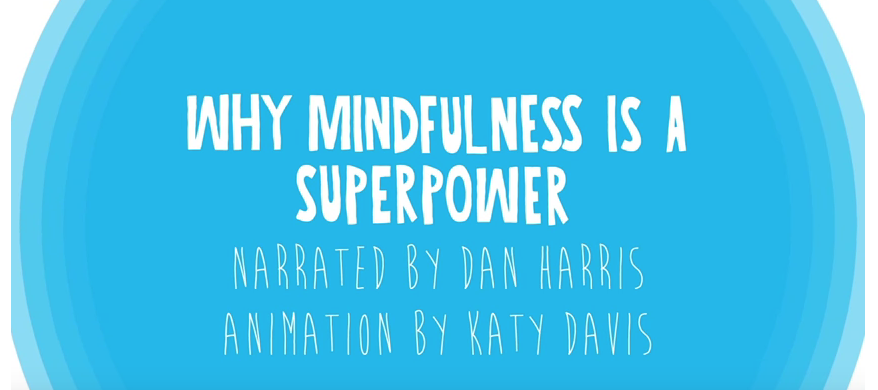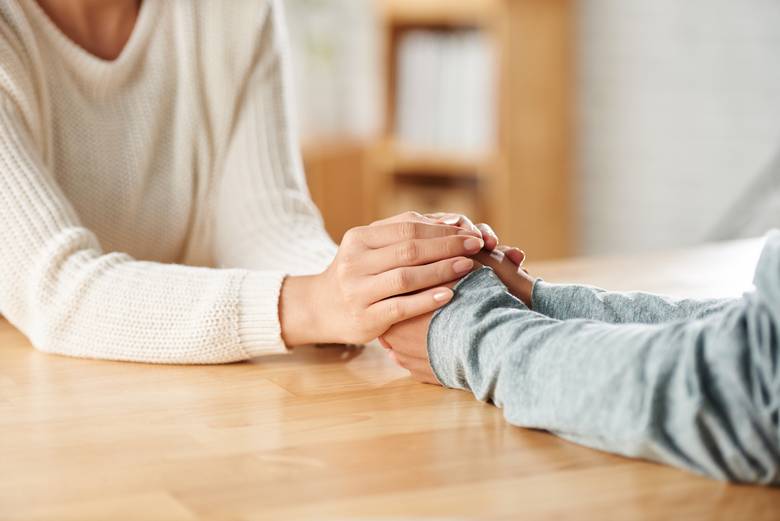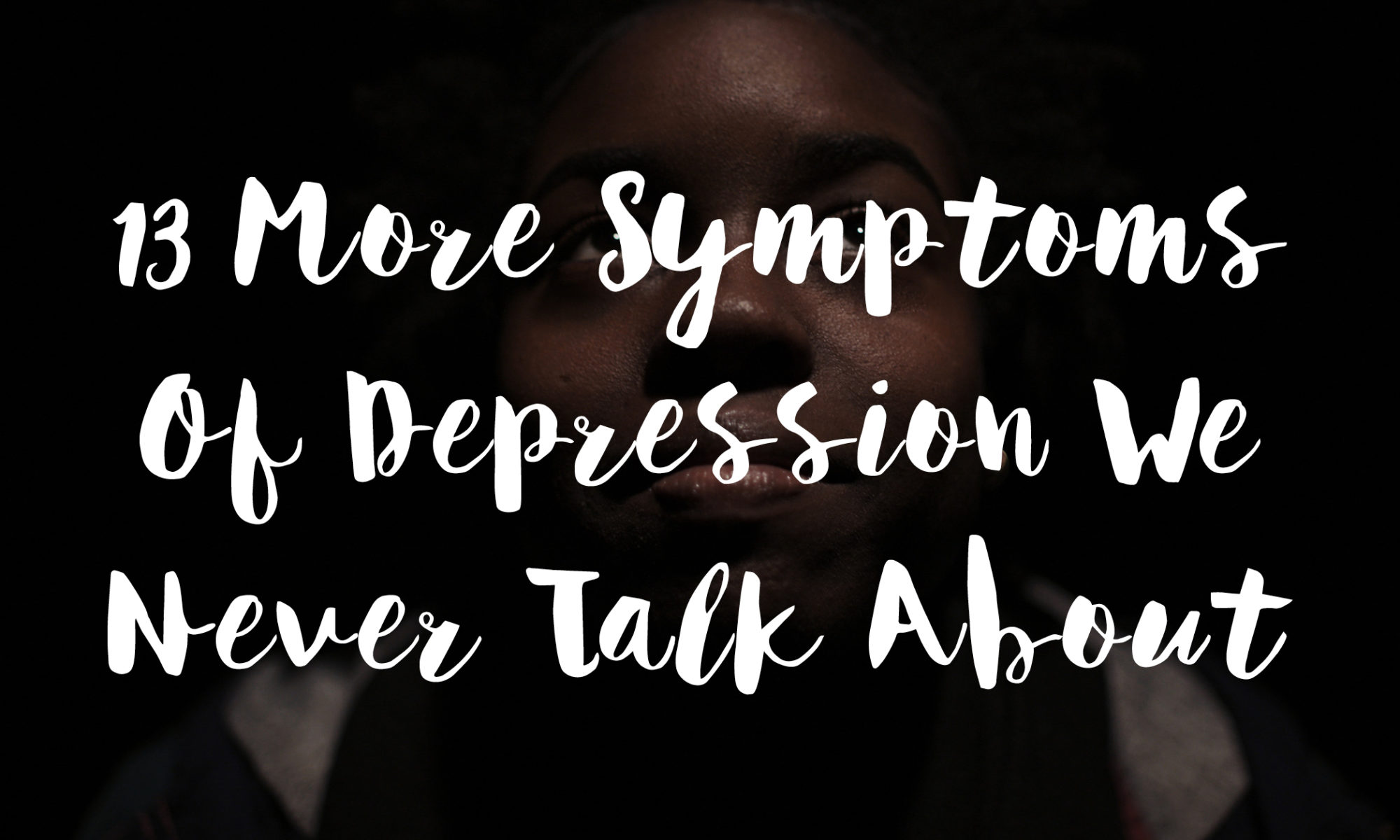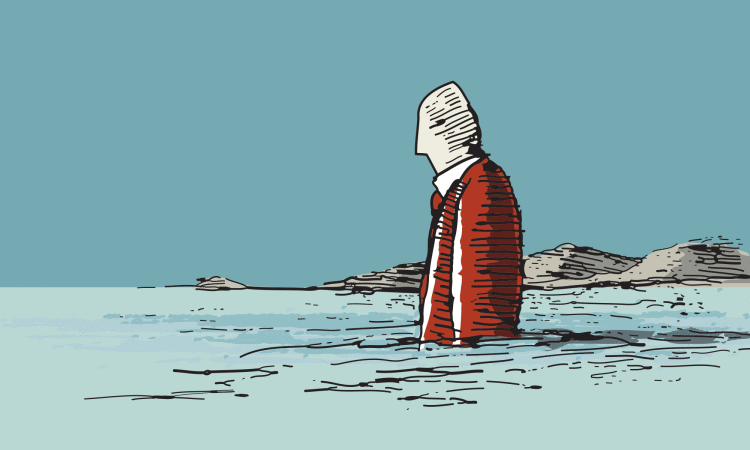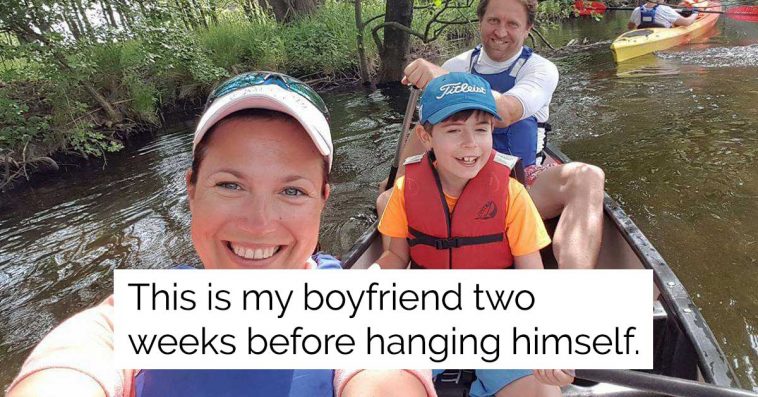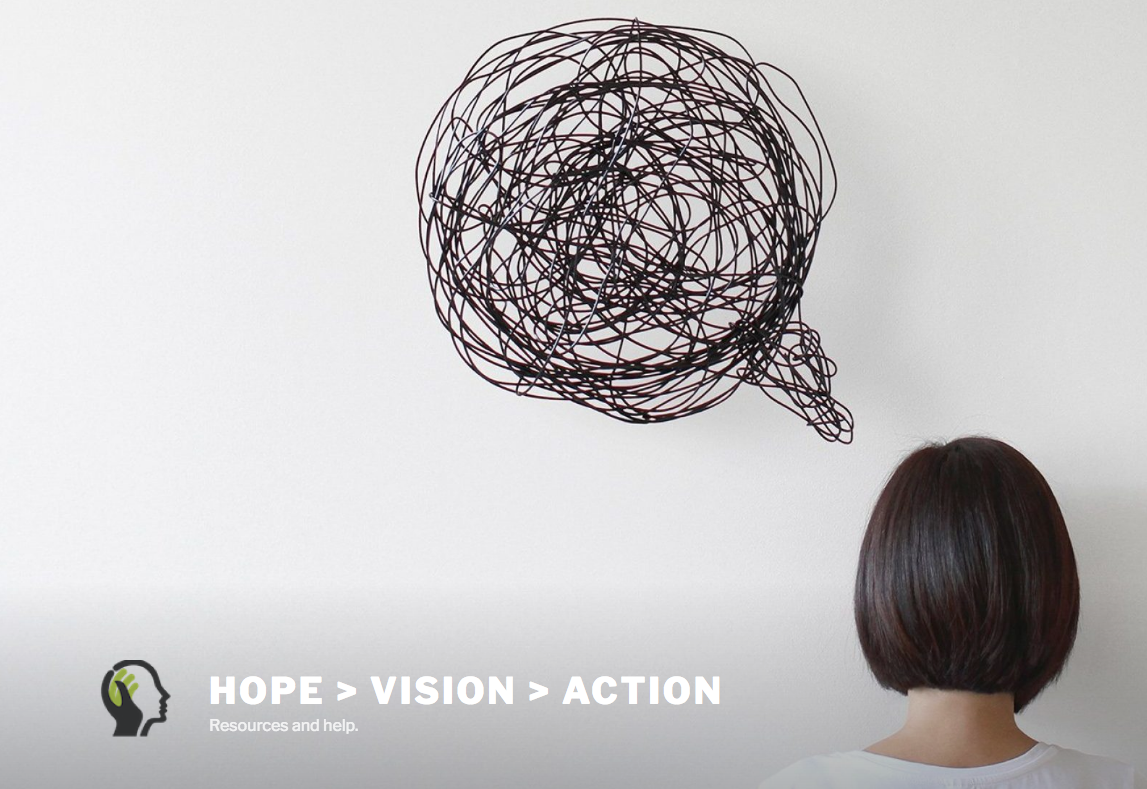Depression is often very well hidden
The people that have suffered and have overcome? They know all the tricks. They know what to say. They know how to act. They know what NOT to say.
And those people sometimes die.
It’s so hard to know, to intrude without intruding, to be able to get in front of it.
I don’t have the answer. Maybe there is none. Just always try and take care of each other. Always care, and never be shy to let them know. Do your best. It’s all anyone can do.
Why Mindfulness Is a Superpower: An Animation
Practicing mindfulness is one of the single most powerful things you can do for your wellbeing.
Want to give it a try? Visit http://www.happify.com for guided meditations and other mindfulness-building activities designed by experts.
Narrated by Dan Harris, author of 10% Happier
‘Are you okay?’: Starting conversations about mental health
The Globe and Mail and We Charity have partnered to promote media literacy and education around global issues. This is part of a series of discussion guides and videos for parents and their children to read, watch and discuss together
Mental health is not defined simply by the absence of mental illnesses or disorders. Mental health involves a balance of the physical, mental and emotional state of being in which all individuals are able to live happy, productive lives, and cope with life’s normal stresses and negative experiences.
Sadly, that isn’t the case for more than three million young Canadians between the ages of 12 and 19, who are at risk of developing serious depression. And only one in five young Canadians who need mental-health services will receive the support they need.
“When children and youth don’t get the mental-health care they need, the consequences are immense,” Jane Philpott, Canada’s former health minister, has said. “Untold anguish, further mental illness and health-care costs, the inability to continue work or school programs, substance use disorders, violence and incarceration – plus the heartache of families who know something is very wrong, but feel desperate and powerless in the face of the suffering of loved ones.”
13 more symptoms of depression we never talk about
Depression can cause a range of different symptoms. Some of them are regularly talked about. Many of them are not.
Whatever symptoms we are experiencing, we are not alone. There are many other people all over the world who share the same struggles that we do.
1. BEING UNABLE TO MAKE DECISIONS
We can feel completely paralysed and unable to make decisions. They often aren’t particularly difficult decisions. It could be something as straightforward as deciding which jumper to wear. But our brains feel so slow and clogged up that we are unable to decide anything at all.
2. DREADING BEING ALONE
Although we often struggle socially, we can also dread being alone. When alone our thoughts and feelings can feel amplified. Without the distraction of other people, they can become completely overwhelming and all-consuming.
3. GETTING STUCK
Sometimes we get stuck. We might sit on the toilet and not move for half an hour. Sometimes we will drive home and then stay in our car, on the drive, for a while before making it into the house. We might run a bath and sit in it until it goes cold. Our body feels heavy and we just don’t have the energy or motivation to move.
4. HIDING IN BATHROOMS
Many people left their hiding in bathroom days behind once they left school. But we will often find ourselves diving for the nearest toilet for a bit of a break from the world. It can be at social situations, when out for a meal, when in town, or somewhere else. Sometimes we just need a bit of a break from the world, and a little bit of breathing space.
5. ISOLATING OURSELVES
We often struggle with social situations when we’re low. We don’t know what to do or say. We often don’t feel part of the group of people we’re with. We struggle to concentrate enough to follow conversations. We feel like we’re bad company and like people are ‘putting up’ with us. We feel like people don’t want us around. So we isolate ourselves. We stay away from people. To protect ourselves to some extent, but also to protect those around us.
6. NOT BEING ABLE TO EXPRESS OURSELVES
Sometimes we want to cry, but we can’t. Sometimes we want to talk, but we feel mute. Sometimes we want to be creative, but our creativity has all dried up. We rarely have the words, colours, or music to match our feelings. We don’t know how to help others understand what’s going on inside our heads. So we are silent.
7. NOT CARING ABOUT OUR SAFETY
We stop caring about whether we live or die. We don’t look when we cross the road. We don’t take as much care as we should when driving our car or riding our bike. We walk through a risky bit of town, in the dark, by ourselves. We don’t wear our bike helmet. We completely stop caring about our own personal safety.
How should we talk about mental health?
Mental health suffers from a major image problem. One in every four people experiences mental health issues — yet more than 40 percent of countries worldwide have no mental health policy. Across the board it seems like we have no idea how to talk about it respectfully and responsibly.
Stigma and discrimination are the two biggest obstacles to a productive public dialogue about mental health; indeed, the problem seems to be largely one of communication. So we asked seven mental health experts: How should we talk about mental health? How can informed and sensitive people do it right – and how can the media do it responsibly?
End the stigma
Easier said than done, of course. Says journalist Andrew Solomon: “People still think that it’s shameful if they have a mental illness. They think it shows personal weakness. They think it shows a failing. If it’s their children who have mental illness, they think it reflects their failure as parents.” This self-inflicted stigma can make it difficult for people to speak about even their own mental health problems. According to neuroscientist Sarah Caddick, this is because when someone points to his wrist to tell you it’s broken, you can easily understand the problem, but that’s not the case when the issue is with the three-pound mass hidden inside someone’s skull. “The minute you start talking about your mind, people get very anxious, because we associate that with being who we are, fundamentally with ‘us’ — us as a person, us as an individual, our thoughts, our fears, our hopes, our aspirations, our everything.” Says mental health care advocate Vikram Patel, “Feeling miserable could in fact be seen as part of you or an extension of your social world, and applying a biomedical label is not always something that everyone with depression, for example, is comfortable with.” Banishing the stigma attached to mental health issues can go a long way to facilitating genuinely useful conversations.
Avoid correlations between criminality and mental illness
People are too quick to dole out judgments on people who experience mental health problems, grouping them together when isolated incidents of violence or crime occur. Says Caddick, “You get a major incident like Columbine or Virginia Tech and then the media asks, ‘Why didn’t people know that he was bipolar?’ ‘Was he schizophrenic?’ From there, some people think, ‘Well, everybody with bipolar disease is likely to go out and shoot down a whole bunch of people in a school,’ or, ‘People who are schizophrenics shouldn’t be out on the street.’” Solomon agrees that this correlation works against a productive conversation about mental health: “The tendency to connect people’s crimes to mental illness diagnoses that are not in fact associated with criminality needs to go away. ‘This person murdered everyone because he was depressed.’ You think, yes, you could sort of indicate here this person was depressed and he murdered everyone, but most people who are depressed do not murder everyone.”
But do correlate more between mental illness and suicide
According to the National Institute for Mental Health (NIMH), 90 percent of people who die by suicide have depression or other mental disorders, or substance-abuse disorders in conjunction with other mental disorders. Yet we don’t give this link its due. Says Solomon, “Just as the association between mental illness and crime is too strong, the connection between mental illness and suicide is too weak. So I feel like what I constantly read in the articles is that ‘so-and-so killed himself because his business had gone bankrupt and his wife had left him.’ And I think, okay, those were the triggering circumstances, but he killed himself because he suffered from a mental illness that drove him to kill himself. He was terribly depressed.”
Avoid words like “crazy” or “psycho”
Not surprisingly, nearly all the mental health experts we consulted were quick to decry playground slang like “mental,” “schizo,” “crazy,” “loonie,” or “nutter,” stigmatizing words that become embedded in people’s minds from a young age. NIMH Director Thomas Insel takes that one step further — he doesn’t like the category of “mental health problems” in general. He says, “Should we call cancer a ‘cell cycle problem’? Calling serious mental illness a ‘behavioral health problem’ is like calling cancer a ‘pain problem.’” Comedian Ruby Wax, however, has a different point of view: “I call people that are mentally disturbed, you know, I say they’re crazy. I think in the right tone, that’s not the problem. Let’s not get caught in the minutiae of it.”
If you feel comfortable talking about your own experience with mental health, by all means, do so
Self-advocacy can be very powerful. It reaches people who are going through similar experiences as well as the general public. Solomon believes that people equipped to share their experiences should do so: “The most moving letter I ever received in a way was one that was only a sentence long, and it came from someone who didn’t sign his name. He just wrote me a postcard and said, ‘I was going to kill myself, but I read your book and changed my mind.’ And really, I thought, okay, if nobody else ever reads anything I’ve written, I’ve done some good in the world. It’s very important just to keep writing about these things, because I think there’s a trickle-down effect, and that the vocabulary that goes into serious books actually makes its way into the common experience — at least a little bit of it does — and makes it easier to talk about all of these things.” Solomon, Wax, as well as Temple Grandin, below, have all become public figures for mental health advocacy through sharing their own experiences.
Don’t define a person by his/her mental illnesses
Just as a tumor need not define a person, the same goes for mental illness. Although the line between mental health and the “rest” of a person is somewhat blurry, experts say the distinction is necessary. Says Insel: “We need to talk about mental disorders the way we talk about other medical disorders. We generally don’t let having a medical illness define a person’s identity, yet we are very cautious about revealing mental illness because it will somehow define a person’s competence or even suggest dangerousness.” Caddick agrees: “There’s a lot of things that go on in the brain, and just because one thing goes wrong doesn’t mean that everything’s going wrong.”
——————————
Suicide awareness
This article is tough to read. Images and stories of both survivors and of people who did not survive (no graphic images – these are pics taken before any actions took place).
It goes to show just how sinister this level of mental health is. People living a normal life. People smiling. Hamming it up for the camera.
And then they’re gone.
We need to talk about suicidal thoughts. We need to do so without judgement. Without stigma. It’s the only way a lot of us will get the help we need.
Mental Illness: It’s Not About Choice
Every day of our lives we apparently make thousands of choices, from the banal to the relatively momentous.
I’ve thought about the concept of ‘choice’ a lot lately, prompted by mental ill-health and the inference that, perhaps, people like me ‘choose’ to be unwell.
Choice is not, “Shall I have constant PTSD (post-traumatic stress disorder) flashbacks?”, nor is it, “Shall I be bipolar and be so hard to live with that my partner leaves me?” It is also not, “Shall I feel so depressed that I’ll think about ending it all?” (90% of those who commit suicide have a mental disorder).
Would Star Wars actress and bestselling author Carrie Fisher have ‘chosen’ to have a severe manic episode whilst working on a cruise ship recently, leading to her being briefly hospitalised?
Would Shobna Gulati, ex-Coronation Street soap actress, have ‘chosen’ to have depression that led to her quitting the programme?
Would Sir Winston Churchill, arguably Britain’s greatest statesman, have ‘chosen’ to be beleaguered by his ‘black dog’, depression?
Dr Jim Bolton, of the Royal College of Psychiatrists, tells me: “I recently asked several patients of mine, ‘How would you feel if people said, ‘You’ve chosen to be ill’? One of them told me, ‘I’ve said to people, ‘Do you honestly think I would choose to be like this? Do you think I would choose to lose my family, my friends and my job?’ Of course I wouldn’t”.
Perhaps it’s because mental illness is to do with the brain, the seat of our choices, that people think it’s a state of health we ‘choose’, even though the evidence suggests otherwise.
What is the secret to happiness?
It’s a question we all want to know the answer to, and a question everyone will interpret in their own way.
Happiness and what it means, how to find it, learn from it and cherish it are things that come up time and time again in my new autobiography, Finding My Virginity. With that in mind, I wanted to find out what happiness means to other people.
I met up with some fascinating people in London, who shared with me their personal secrets to happiness. It was delightful hearing Mr Singh talk about living in the moment, and moving talking with Joe about his incredible strength in living a sober life.
Little Ben and Ellie Rose had some wonderful viewpoints from a younger perspective (including Spiderman!), while Aliah’s thoughts about empowerment and making your own choices really resonated.
I really loved Owen’s personal story, and it was he who asked me what is my secret to happiness. To find out my answer, watch the video (click here), and get your copy of Finding My Virginity.
A Time for Gratitude and Aspiration
By James Gimian
Two of the main energies shaping this time of year, the winter solstice and the holidays, seem to be at odds. On one hand, we have the increased darkness of the shortened days, while, on the other, everywhere we see the colorful lights of the festive season. But what I really love about this mashup is how these energies combine to naturally turn our minds to two other important things that mark this season: all that we are grateful for and all that we aspire to.
In this last blog of 2017, I’d like to leave you with some of both. I’d like to emphasize the “some” because the two lists are way too long to detail here, and for everyone one that I include I’m sure I’ll leave another two out.
Our Gratitude
First and foremost, I’m grateful for the indomitable mindful spirit in us all—the intelligence that seeks insight and awareness, that yearns for a more inclusive way to see and a more healthy way to be—both alone and in relationship. We’ve seen in the many hardships of 2017 how people’s essential goodness shines through in even the most challenging situations.
In the world of mindfulness, we see this human spirit moving in both the big and the small, as I talked about in my last blog. We are grateful for the well-known champions and famous mindfulness leaders, thinkers, funders, strategists, all who impact the big picture and the critical leverage points. They give the talks, write the articles, and set the trends. We can’t do without them.
We’re equally thankful for all the local champions, so many of you in neighborhoods everywhere inspired to bring the benefits of mindfulness, kindness, and compassion practices to your communities. You’re too many to name but so inspiring to us, so we send along a shout out and thank you to you all.

